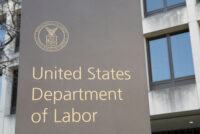Tight Around the White Collar – The New Overtime Rule is Here
The U.S. Department of Labor (DOL) has published its final rule amending the overtime regulations of the federal wage and hour law, the Fair Labor Standards Act (FLSA). The new rule requires an increase to the salary threshold for executive, administrative, and professional workers (EAP) and Highly Compensated Employees (HCE) to qualify for exemption from […]










